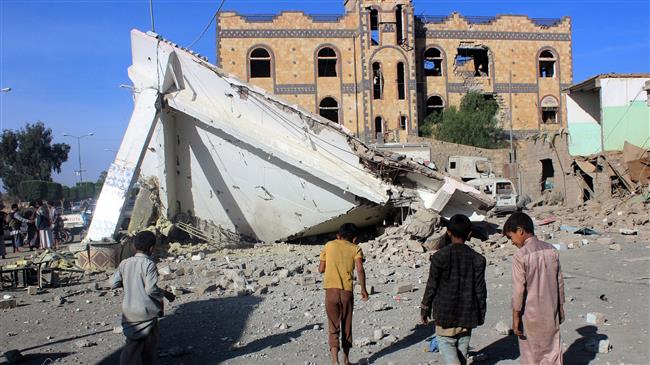
RNA - To that end, the UAE is demanding that the Ansarullah resistance fighters unconditionally capitulate and agree to withdraw from the port.
Hodeidah is the main aid port into Yemen and the only port under the control of Ansarullah fighters. This means the port is the lone source of food for about 8.4 million people and the fall of the city – not that it will ever fall – could spark a mass famine. There are also an estimated 250,000 civilians left in Hodeidah. With airstrikes against the city on the rise, the Saudis and Emiratis cannot claim that only withdrawing from the city can “save the population.”
First and foremost, they have to stop their indiscriminate airstrikes which are being fully supported by the United States, Britain and France. These aerial attacks are not going to clear the ground in the city to realize what they call “liberating the city and saving lives” – the same civilian lives they have been destroying since the start of the conflict in March 2015. The attacks will not bring any “victory” to the invaders, for the Ansarullah fighters and the popular units remain capable, resilient, and perhaps most importantly, patient.
Further still, while the Emiratis demand capitulation from Ansarullah, anti-war advocates in the West are calling the attack on Hodeidah a failure by the US to stop it and demanding an end to Western military support for the Saudi-led coalition. The attack has only exacerbated hunger in the impoverished and war-torn Red Sea port city. The blockade has hindered international humanitarian assistance, and has had severe consequences on a region already facing restrictions on the import and internal transportation of vital supplies, including medicines, food, and fuel.
How is it possible for the UAE to claim it wants to save lives seeing that since the start of the fighting, thousands of Hodeidah's 600,000 civilians have evacuated and hundreds of people have been killed? A better option could be for the Saudis and the Emiratis - who are largely dependent on Western weapons, intelligence, and logistical support - to immediately implement a ceasefire due to the fact that if they don’t, the majority of Yemenis will be cut off from humanitarian assistance.
Not just the normal back-and-forth. The tightrope to defeat Ansarullah is higher and narrower. One foot wrong, and they are gone. The UAE's assault on Hodeidah is just another example of the Trump administration outsourcing US policy in Yemen to its regional partners. Believing that this offensive will result in the capitulation of Ansarullah popular resistance force is wishful thinking. The attack is condemned under international law. The UAE’s attempt to put foots on the ground or to carve out strategic footholds in the poorest country in the Arab world won’t go anywhere.
According to Fars News Agancy, he UAE should accept that its forces are walking a tightrope. Ultimately only the Yemenis can decide their fate. There will be no room for invaders in the political future of the country either. The UAE – just like Saudi Arabia - won’t be able to consolidate its role in the south or in the Red Sea, much less hoping in the process to maximize its influence over political developments. In this environment, a realistic option would be for the warmongers to accept an immediate ceasefire and move toward a political settlement to resolve the conflict. The US, UK and French governments should also stop their support for the fighting as it makes them complicit in Saudi-Emirati war crimes in Hodeidah.
To be sure, the Saudis and the Emiratis cannot avoid being seen as occupiers acting through militias motivated by their own factional interests. They would not escape scrutiny and international justice over their actions in Yemen. The international civil society and human rights groups are continuing to investigate Saudi-Emirati airstrikes in Hodeidah and are doing everything they can to collect evidence from outside the country.
From their end, even if the United Nations is incapable of investigating, they are not going to stop trying to document and show what the impact of coalition airstrikes are on Yemeni civilians. After all, those who play with fire in Yemen must remember that smoke will get in their eyes and that justice will be served.
847/940